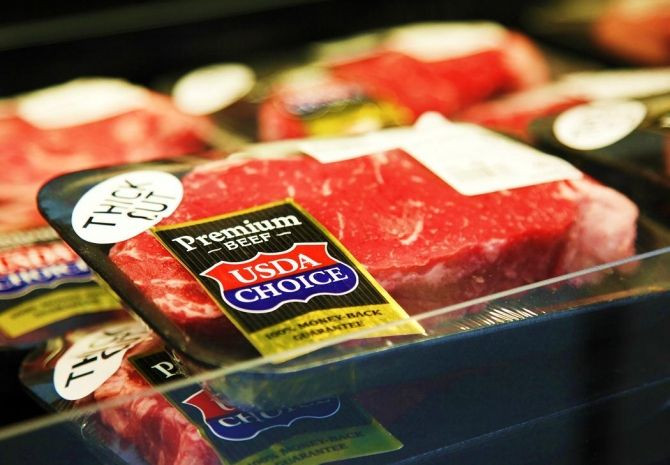Daily Serving of Red Meat Raises Risk of Early Death, Cancer, Heart Disease

Eating a serving of red meat a day significantly increases the risk of premature death from diabetes, heart disease or cancer, according a new comprehensive study published on Monday in the Archives of Internal Medicine.
The longitudinal study, with a follow-up of up to 28 years, consisted of 121,342 American men and women, and found that each additional serving of red meat, both processed and unprocessed, was associated increased risk of all-cause premature death, with a higher risk linked to processed meats, according to Dr. Frank Hu of the Harvard School of Public Health in Boston and his research team.
The researcher reported that one serving of unprocessed red meat a day increased the risk of premature death by 13 percent, and the risk was increased to 20 percent for processed meat.
Unprocessed red meat comprised beef, pork, lamb, or hamburger and processed red meat included bacon, hot dogs, sausage, salami, and bologna.
Investigators estimated that about 9.3 percent of the deaths in men and 7.6 percent of the deaths in women could have been avoided by consuming less than half of a serving of red meat a day at about 42 grams, equivalent to a hot dog.
The vast majority of the people studied consumed more than the recommended about during the studies.
Researchers also found that people who ate red meat had a higher body mass index, were more likely to smoke and were less physically active.
However, after controlling for other lifestyle variables researcher still found that a daily intake of an additional three ounces of red meat was associated with a 12 percent greater risk of all cause premature death, a 16 percent increase of cardiovascular death and a 10 percent increase of death by cancer.
The increased health risks associated with processed meat was much greater, with a 20 percent increase for all-cause mortality, 21 percent for cardiovascular death and 16 percent for cancer.
Hu and team analyzed data from the Health Professionals Follow-Up Study, which followed 37,698 men ages 40 to 75 from 1986 to 2008 and, from the Nurses' Health Study that followed 83,644 women ages 30 to 55 from 1980 to 2008.
At the end of the study, 23,926 participants had died, including 5,910 from cardiovascular disease and 9,464 from cancer.
The study authors recommend replacing one serving of total red meat with one serving of fish poultry, nuts, legumes, low-fat dairy products or whole grains daily, which are actually associated with a lower risk of premature death.
Fish was associated with a 7 percent decreased risk of dying, 14 percent for poultry, 19 percent for nuts, 10 percent for legumes and low-fat dairy products and 14 percent for whole grains.
In an accompanying editorial Dr. Dean Ornish of the University of California San Francisco, said that "plant-based foods are rich in phytochemicals, bioflavonoids, and other substances that are protective."
"In other words," Ornish wrote, "what we include in our diet is as important as what we exclude, so substituting healthier foods for red meat provides a double benefit to our health."
"More than 75 percent of the $2.6 trillion in annual U.S. health care costs are from chronic disease. Eating less red meat is likely to reduce morbidity from these illnesses, thereby reducing health care costs," Ornish noted.
The researcher said that saturated fat, cholesterol, heme iron, sodium, and nitrites in red meat could explain some of the risk of cardiovascular death, and that some compounds in red meat or created by high-temperature cooking like nitrosamines, nitrosamides, polycyclic aromatic hydrocarbons, and heterocyclic amines may be potential carcinogens that might explain the increased risk of cancer death.
Published by Medicaldaily.com



























